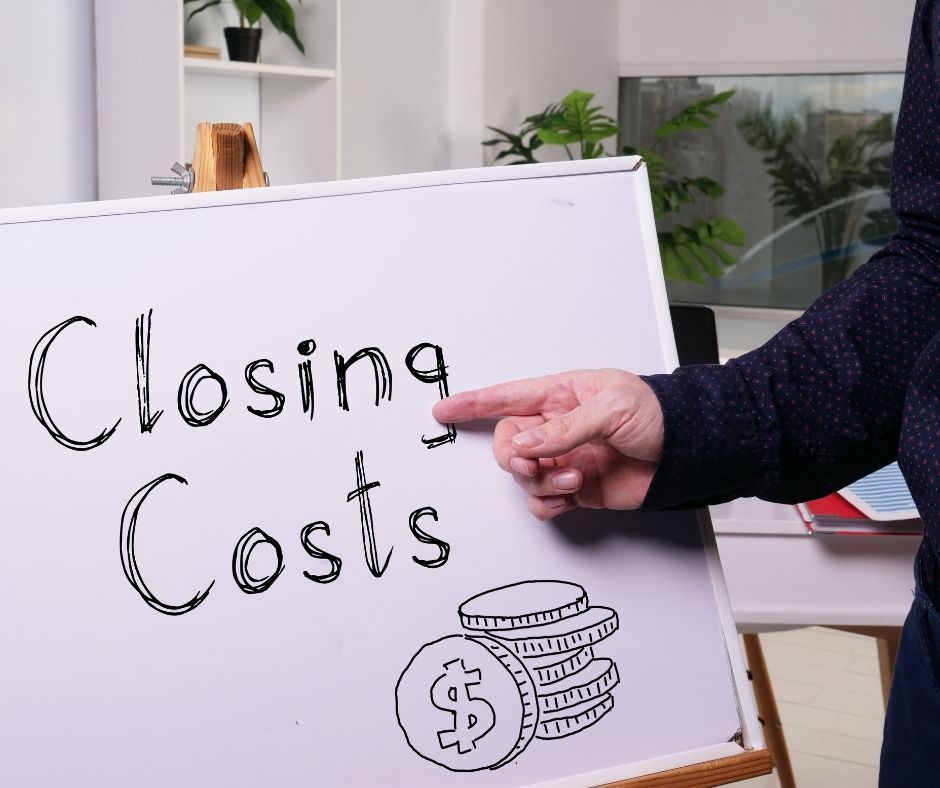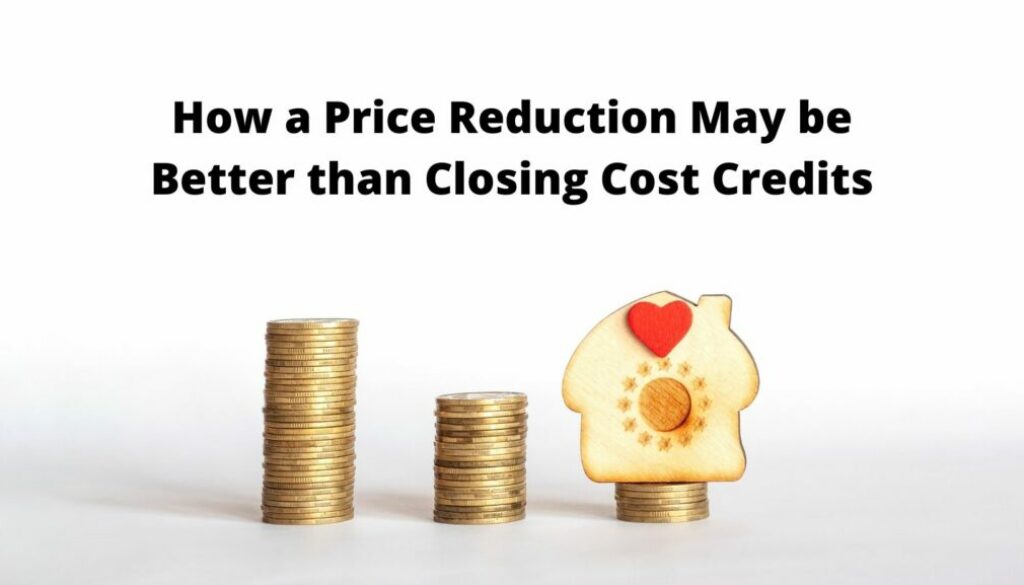How a Price Reduction May be Better than Closing Cost Credits
Sometimes in negotiating the final details of a home purchase, a buyer can ask the seller for a closing cost credit, but many times this is not as beneficial to a seller as giving a reduction to the purchase price.
Here are 3 Reasons Why a Price Reduction is More Beneficial to a Seller than a Closing Cost Credit.
If you were to list your home for sale at $250,000 and you receive two different offers, one buyer offers full list price and requests a $5,000 closing cost credit. The other offer is for $5,000 below the full list price with no request for a closing cost credit. What would be the better offer?
With the first offer you would be paid a larger amount of money for the home, but you would still be giving up that $5,000 by paying it towards the closing costs for the buyer. With the second offer, you are receiving less money for the home, but you are not paying out a check for a $5,000 credit. In either scenario you will be receiving $245,000, so where is the difference?
A Lower Sales Price Reduces the Selling Fees
There are several fees you will pay when you sell your home that will be calculated as a percentage of your sale price. The lower the sale price the less you will pay in fees. For example, many fees are calculated on a percentage of the final sale price of the home. These can be items like escrow fees, title fees, transfer taxes, and more. Many times transfer tax fees arise with each additional $500-$1000 of property value.
It can reduce the taxable portion of the capital gains on your home sale
If the equity you earn from the sale of your home goes over a certain threshold for capital gains tax exemption accepting a price reduction rather than a closing cost credit can help you to reduce the taxable portion of the profit.
Calculating your capital gains responsibility requires taking the sale price of the home, subtracting any selling fees, and subtracting the original price of the home plus capital improvements. This resulting number is what the government views as your “gain” or profit and this is all taxable income.
If your gain or profit is less than $250,000 for a single filer or $500,000 for joint married taxpayers and you meet the use and ownership test then you don’t owe capital gains. If you exceed this threshold you’ll need to pay short-term capital gains which are taxed as ordinary income or long-term capital gains taxed at the graduated threshold of 0%, 15%, or 20%.
Selling the home at a lower price could help you to pay less or no capital gains tax.
The risk of a low appraisal
If you list your home at the higher end of its fair market value range and a buyer offers over the asking price in exchange for closing cost credit this could lead to issues when it comes time for the home appraisal.
The lender will only finance a home up to its appraised value after going through the professional appraisal process. If the appraiser determines a home is worth less than the price that is offered for the home on the contract the buyer and seller will need to renegotiate the sale price or the buyer will need to make up the difference in cash.
A buyer offering a higher sales price means that the buyer needs their loan to be approved for that higher value or have plenty of cash at the ready to pay the difference. An appraisal coming in below the offered sale price will not take into account any closing cost credits for loan approval.
For more information on purchasing a home in Snohomish County please contact me at any time.
More Great Tips for Home Sellers Today
- 20 Things That Could Kill a Real Estate Sale
- 4 Things You Should Be Doing if You Want to List
- 4 Neighborhood Features That Sell a Home
- 4 Easy Steps to a Clutter-Free Kitchen
- 10 Ways You Could Sabotage Your Own Real Estate Sale
- How Much Value Does a View Add to a Property?
- Simple Steps to Home Buying
- How to Buy an Older Home in North Everett
- 10 Ways Homeowners ‘Trick’ Buyers in the Inspection
- 5 Things to Know About Buying a Historic Home
- The Importance of a Home Warranty
- What to know about the first year of homeownership
- How to Make an Offer on an REO Property




